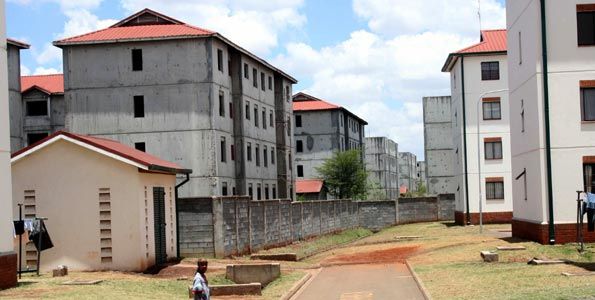The respondents believe that unless there is a template, the shortage will continue unabated.
Andrew Nevin, Chief Economist, PricewaterhouseCoopers (PwC) in his response said that Nigeria needs a minimum of 700,000 housing units yearly to be able to bridge the country’s 17 million deficit. While delivering a keynote address at a 2020 public lecture in Lagos on Nigeria’s Economic Outlook Conference with the theme “Nigeria’s Prosperity ahead 2030 Population, Data, Productivity,”
He said that finding an urgent solution to resolve the issue had become imperative. The economist said that the challenges facing settlements such as the demand for infrastructure, basic services and housing were always on the increase. Nevin said that housing facilities were grossly inadequate, and even the deficit, estimated at up to 17 million, was growing at about 20 per cent annually.
An agency report quoted Nevin as saying “Nigeria holds about $300 billion or as much as $900 billion worth of dead capital in residential real estate and agricultural land alone. Almost 50 per cent of the Nigeria population lives in cities and about 80 per cent of this urban population lives in substandard conditions,’’ he said.
According to the economist, Nigeria remains the largest economy in Africa, while Lagos State is the fastest growing city in Africa with about 77 persons added to the population every hour. Nevin gave the estimate of the current output of the formal housing sector to range between 100,000 to 200,000 per year.
He described Nigeria as Africa’s leading economy and also the number one African country for remittances which is among the top five countries globally for inward flows and the largest recipient of remittance flows into the Sub-Saharan Africa (SSA) in 2018.
Nevin said the migrant remittance to Nigeria rose by 14 per cent after a brief decline in 2016, from $22 billion in 2017 to over $25 billion in 2018.
“The 2018 value represented 6.1 per cent of Nigeria’s Gross Domestic Product (GDP), which is 11 times of the Foreign Direct Investment (FDI) inflows and 7.4 times larger than the foreign aid received in 2017,” he said.
According to him, the remittance inflow is projected to increase to over $29 billion in 2023, underpinned among other factors on the rising migrant population of Nigerians. Nevin outlined the seven themes expected to shape the Nigeria economy in 2020 to include dead capital, power of diaspora, large informal sector, shrinking public fund and low tax.
Credit: Sun news online

